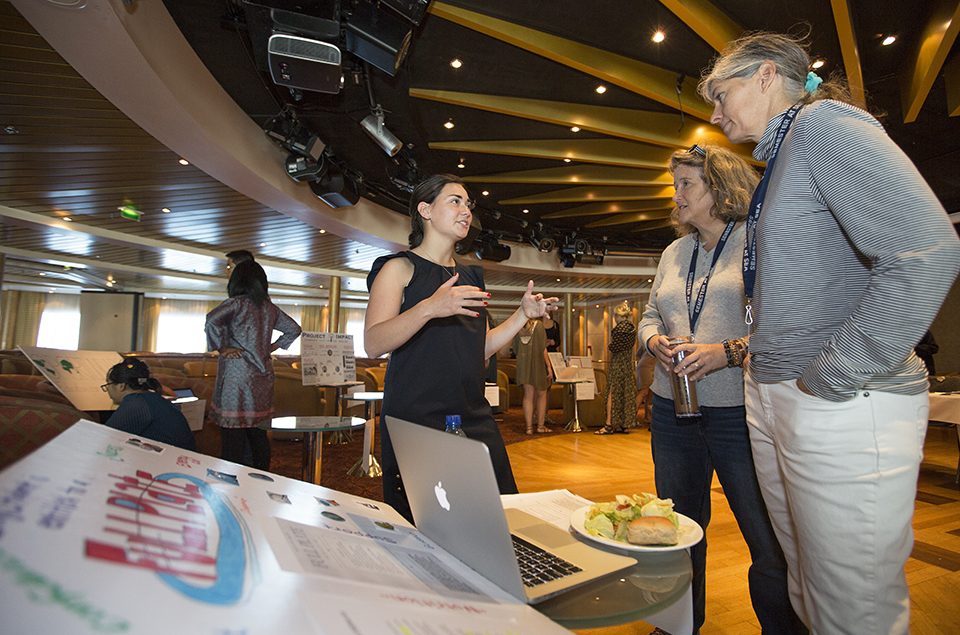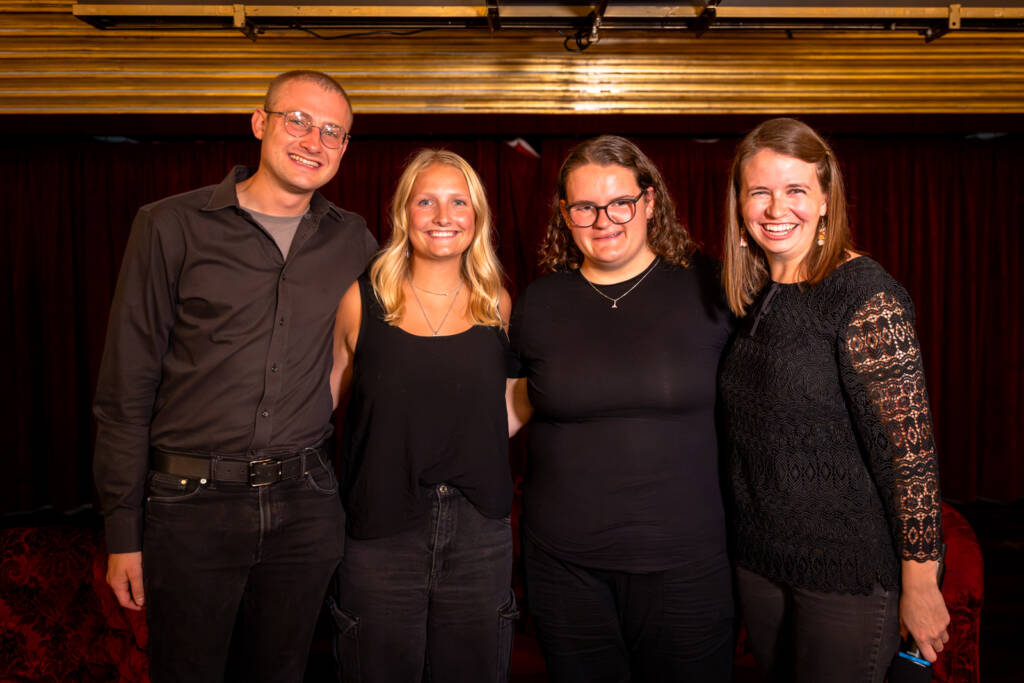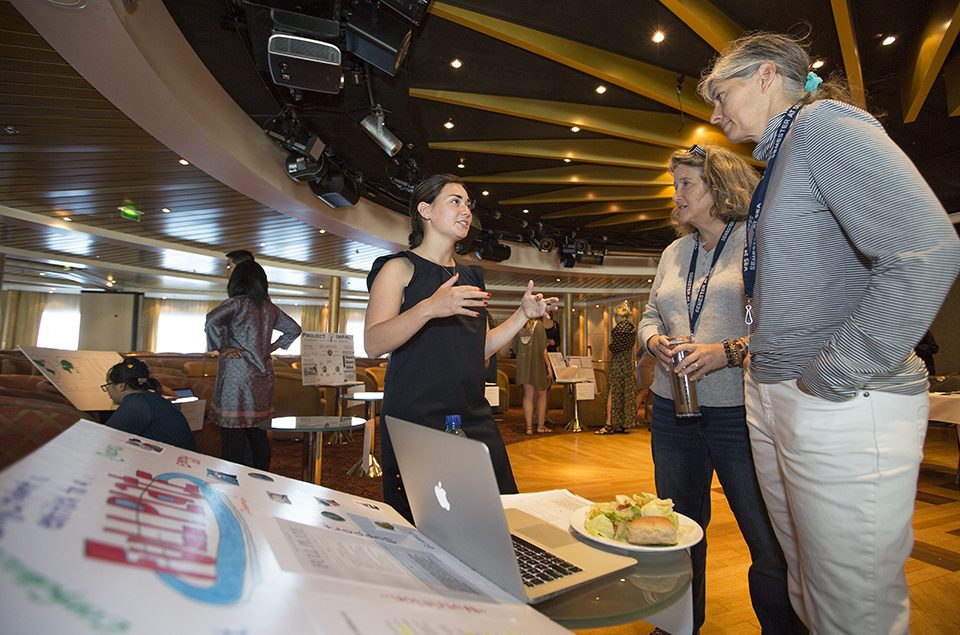
As the Spring 2015 voyage comes to a close, students have gained an invaluable global perspective and a desire to create impact for social good, but how can students take action? In partnership with the Resolution Project, a global non-profit fostering leadership development through collaborative social entrepreneurship, and as part of the Social Entrepreneurship programming, lead by Susan Mueller, and the Social Innovation student club, students were given the opportunity to participate in the Resolution Social Venture Challenge.
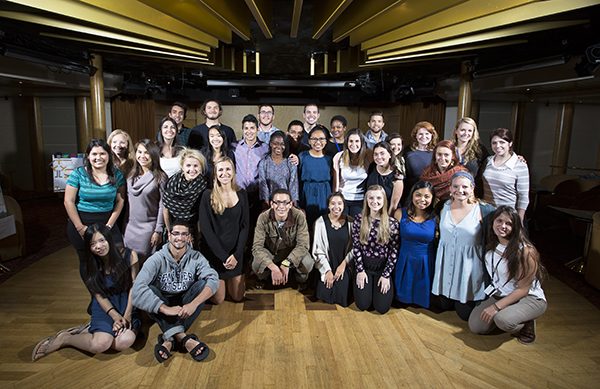
During the four month voyage, sixteen teams of students managed to meet, form teams, and innovate new and creative ways to tackle some of the world’s most pressing problems. These ideas percolated throughout the trip, and culminated in presentations on April 27th and April 28th. Five representatives from the Resolution Project, including Resolution Fellows chosen on the Spring 2014 voyage, joined the voyage in Morocco and traveled on the MV Explorer to England. The sixteen teams first displayed their ideas in an open forum for the ship-wide community (and the judges from the Resolution Project). Team members pitched their ideas and answered questions in a poster-session format. The judges chose four finalists teams to advance to the finals, where 15 minute formal presentations where made in the Union to voyagers and Resolution Project judges.
So what kind of ideas can make a big impact? How about offering experiential learning through summer camp in Madagascar, fighting climate change by replacing cattle-based food with insect-based food, linking retiring expert volunteers with struggling non-profits, or gathering trash in a small villages to up-cycle products while providing environmental and other educational programs. These innovative ideas are just a sampling of the 16 Resolution Social Venture Challenge projects that students created during the Spring 2015 voyage. In addition to developing their ideas, students were competing for the chance to receive a Resolution Fellowship. Fellows receive seed funding, strong advisory support providing hands-on mentorship, access to resources and training, and access to a network of advisors and action-oriented peers. In the end, two teams were chosen as winners.
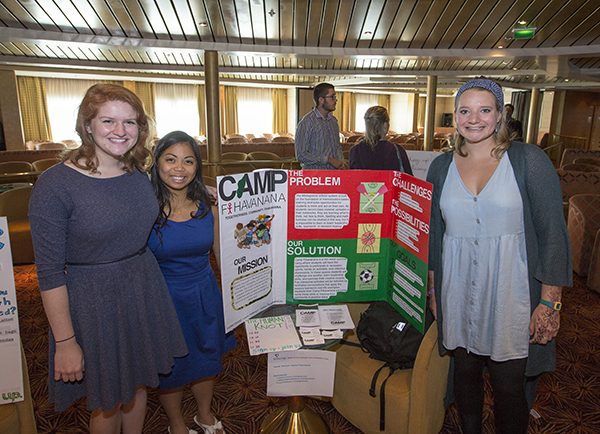
One of the winning teams was Camp Fihavanana, consisting of Laura Patterson, Sophie Connot and Jessica Razanadrakoto. They found out that Malagasy schools lack hands-on learning opportunities; all learning is based on short-term textbook memorization. Through the Semester at Sea program model, they knew experiential learning has long-term effects and leads to lifelong knowledge. Therefore, they designed a summer camp to fill those learning gaps through the interactive, applied activities of recreational sports, creative arts and leadership modules.
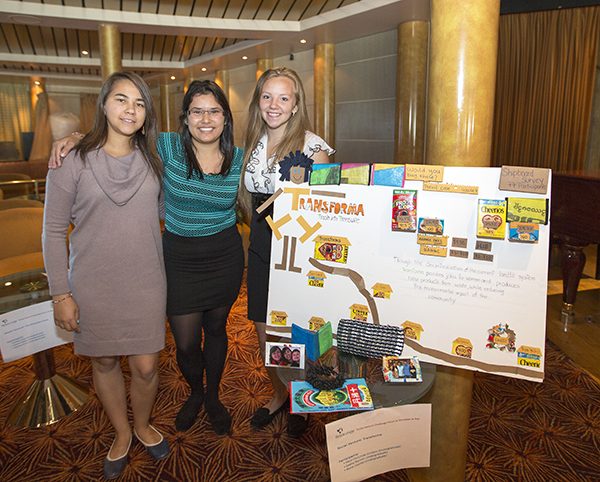
The second winning team was Transforma and it was made up of Maria Castillo, Sasha Burnett, and Nicol Chinchilla Cordero. The idea for Transforma is to use current fee-based waste disposal system to collect and separate trash weekly, and a price reduction will serve as an incentive for villagers to separate their own trash. They will provide mentoring for women to create goods from the materials to be sold in the local market.
These teams become Resolution Fellows and will develop their ideas after they return home. The celebration of the winning team on the final evening was a fitting ending to a voyage filled with passionate people, committed to learning, growing, and changing the world for the better.
